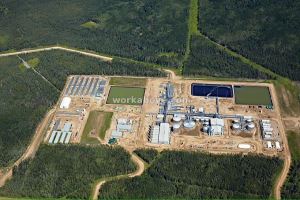
Researchers for California’s Low Carbon Fuel Standard have recently released new data measuring the carbon intensity of various crude oil blends, including diluted bitumen (a.k.a. ‘dilbit’) and upgraded synthetic crude oil (‘SCO’) from the Canadian oilsands. The Californian findings will not be well-received by anti-oilsands activists.
The “dirtiest oil in North America” is not produced in Canada, but just outside Los Angeles, where the Placerita oil field generates about twice the level of upstream emissions as Canadian oilsands production.
Crude oil from Alaska’s North Slope, which makes up about 12 per cent of California’s total crude slate, is actually “dirtier” than the Canadian dilbit known as “Access Western Blend”.
'Green herring’. About 80 per cent of the emissions attributable to a barrel of oil occur during the downstream combustion of refined fuel in a vehicle — not during the upstream production of crude oil.
References
How clean is our dirty oil
Related Stories
Huffington Post
Researchers for California's Low Carbon Fuel Standard found there are 13 oil fields in California plus crude oil blends originating in at least six other countries that generate a higher level of upstream greenhouse gas emissions (GHG) than that of our Canadian oilsands blends?
 Did you know that same study found the "dirtiest oil in North America" is not produced in Canada, but just outside your own hometown of Los Angeles (pictured left), where the Placerita oil field generates about twice the level of upstream emissions as Canada's oilsands?
Did you know that same study found the "dirtiest oil in North America" is not produced in Canada, but just outside your own hometown of Los Angeles (pictured left), where the Placerita oil field generates about twice the level of upstream emissions as Canada's oilsands?
Actually, the title of "world's dirtiest oil" goes to Brass crude blend from Nigeria, where the uncontrolled release of methane during the oil extraction process generates upstream GHG emissions that is over four times higher than Canadian diluted bitumen.
Beacon Energy News
Alberta oil sands not discriminated against by California Low Carbon Fuel Standards program
There has been a lot of talk recently about how some California crudes are “dirtier” than Alberta oil sands crudes. Guess what? Under the new Low Carbon Fuel Standards regime, California doesn’t care if Canadian oil is “dirty.”
But Stringham notes that Alberta oil sands producers are also penalized in Alberta by the $15 per tonne of CO2 under the provincial Specified Gas Emitters Regulation.
Imperial Oil’s Kearl oil sands mining project uses low-energy extraction methods to reduce GHG emissions to just two per cent over the average American crude oil carbon intensity.
And a number of Canadian producers are using lighter hydrocarbons and in situ production methods to dilute bitumen downhole instead of steaming it. This allows them to use little or no steam, again reducing carbon intensity to levels very close to average crude oil levels.
For now, California doesn’t mind if Alberta oil sands crudes are “dirty.” Soon, no one else may, either.